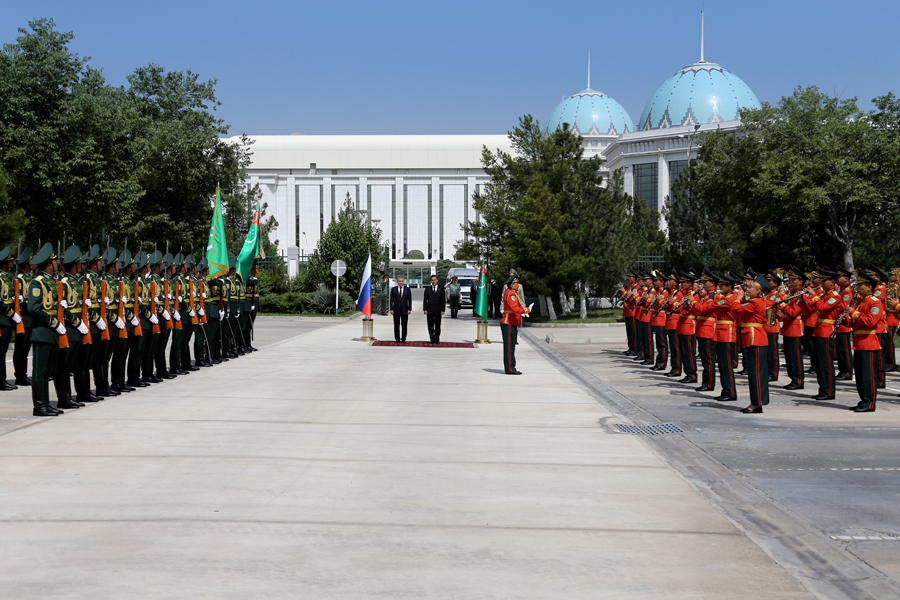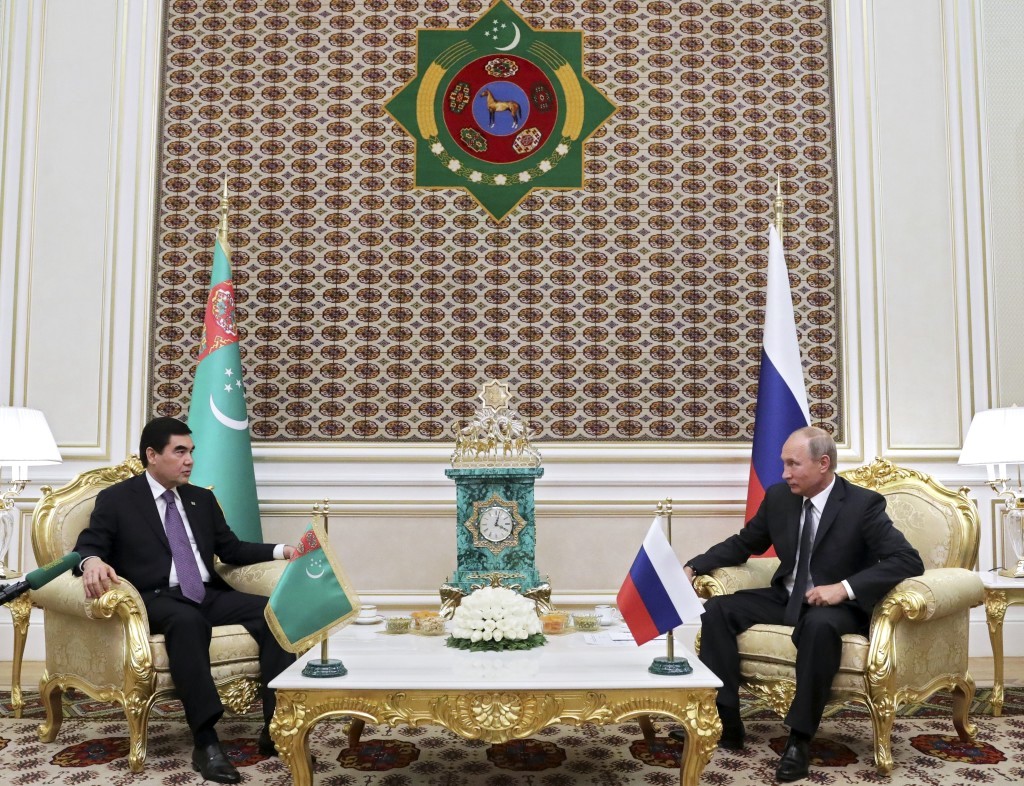Implications of Turkmen-Russian Security Consultations
Recent Articles
Author: Nicole Wolkov
03/09/2020
The Turkmen and Russian deputy foreign ministers held security consultations in Ashgabat February 4. The Russian delegation, headed by Deputy Minister of Foreign Affairs Oleg Syromolotov, and counterparts in the Turkmen foreign ministry discussed issues of security, including the implementation of measures combatting terrorism and cooperation within international organizations, such as the United Nations. The two sides also discussed strengthening regional collaboration to uphold security and stability through information sharing and expertise exchange. Additional topics included international information security and collaboration on countering the online spread of extremist and terrorist ideology.
This meeting calling for increased security collaboration between Turkmenistan and Russia follows unconfirmed reports from last month that Russian troops are present along the Turkmen-Afghan border. According to a correspondent from RFE/RL's Turkmen Service, who met with a border guard in Turkmenistan’s eastern Lebap province, troops had increased security due to possible attacks from Afghan militants. According to the border guard, many Turkmen warplanes recently started making reconnaissance flights along the border between Serhetabat and Koytendag. These flights follow a December 18, 2019 statement from Russian Security Council Chief Nikolai Patrushev, which said that “more than 2,000” militants from the Islamic State of Iraq and the Levant–Khorasan were strengthening their position on the Tajik border in preparation for an incursion into Central Asia. According to a source in the Turkmen State Border Guards Service, Russian and Turkmen troops have been collaborating along the Afghan-Turkmen border for over a year. Another unconfirmed report indicates that 300 Russian troops are assigned to the Serhetabat sector of Turkmenistan. However, the Turkmen government has admitted neither to problems along the 462-mile Afghan border nor to the stationing of Russian troops there.

Russian Minister of Defense Sergei Shoigu visits Ashgabat. Source: Wikimedia Commons
Turkmenistan has repeatedly reiterated its policy of "positive neutrality," and that it does not require outside help. Similarly, Turkmenistan is one of two Central Asian nations – the other being Uzbekistan – not a part of the Russian-led Collective Security Treaty Organization (CSTO). Nevertheless, in June 2016, Russian Defense Minister Sergei Shoigu visited Ashgabat to offer Russian help in strengthening Turkmenistan’s military capabilities, military training, and arms sales. Later, in December 2018, the then-commander of Russia’s Central Military District General, Yevgeny Ustinov, announced increased security cooperation with Turkmenistan and Uzbekistan.
Has Turkmenistan been driven toward Russia for military and security aid, overcoming its historic suspicion of the nation that conquered it in 1881? Border zone instability and fear of terrorism may provide an opportunity for Russia to increase influence in Turkmenistan. New security consultations between Moscow and Ashgabat suggest these security ties continue to grow. However, stationing Russian troops on Turkmen soil would constitute a gross breach of "positive neutrality," and if revealed would be viewed internally as a violation of national sovereignty. While military cooperation may be rebounding, until Western observers actually have eyes on Russian troops patrolling the Turkmen-Afghan border, rumors of their presence in Turkmenistan remain just that – rumors.

Russian President Vladimir Putin and Turkmen President Gurbanguly Berdymukhamedov meet in Ashgabat in 2017. Source: Associated Press.